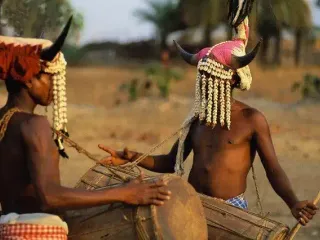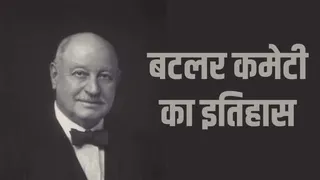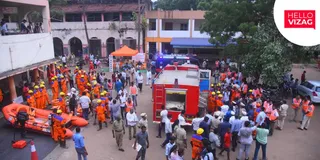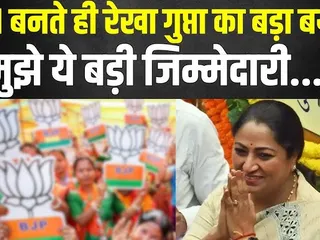Historical and Cultural Significance of Ningol Chakouba

Historical and Cultural Significance of Ningol Chakouba
The information provided in this content is intended for general informational purposes only. While efforts have been made to ensure its accuracy at the time of publication, there is no guarantee that all details are current, complete, or correct. The content should not be relied upon as a sole source for decision-making. Users are encouraged to verify any information before acting upon it.

 (24)jpeg-1722421859875.jpeg.webp)












Explore the multifaceted world of social and cultural affairs, encompassing societal structures, cultural practices, and their impact on individuals and communities. Learn about key concepts, current events, and resources.
Ningol Chakouba is a prominent festival in Manipur, India, celebrated to honor and strengthen the bond between married daughters and their parental families. The term 'Ningol' refers to married women, and 'Chakouba' means an invitation to a feast. This festival is observed on the second lunar day of the Manipuri month Hiyangei, typically falling in October or November. The origins of Ningol Chakouba trace back to ancient times. Historical records suggest that during the reign of King Nongda Lairen Pakhangba, Queen Laisana would invite her brother, Poireiton, to the royal palace for an annual feast. This tradition, initially known as 'Piba Chakouba' (where 'Piba' means brother or son), involved sisters inviting their brothers. However, in the 19th century, King Chandrakriti Singh found it challenging to visit all his sisters' homes in a single day. To address this, he invited his sisters to the royal palace for a collective feast, transforming the tradition into 'Ningol Chakouba,' where brothers and parents invite their married daughters and sisters. This evolution highlights the festival's adaptability and its emphasis on familial bonds. Culturally, Ningol Chakouba serves as a significant social event that reinforces family ties and unity. Married daughters return to their parental homes, often bringing their children, to partake in a grand feast prepared with traditional Manipuri dishes. The celebration includes the exchange of gifts, sharing of blessings, and reminiscing about shared memories. The festival transcends religious boundaries, being celebrated by various communities in Manipur, and has become a symbol of the state's rich cultural heritage and emphasis on family values.
Explore the meaning, origin, and cultural significance of the name Siju. Discover its variations, popularity, and potential connections to different cultures and languages.
Discover the vibrant tapestry of India, from its ancient civilizations and majestic monuments to its diverse landscapes and rich cultural heritage. Explore the fascinating history, geography, and culture of this incredible nation.
Discover Nawada, a district in Bihar, India. Explore its rich history, vibrant culture, geographical features, economy, and more. Learn about its significance and attractions.
Discover the breathtaking beauty and rich culture of Nepal, from the majestic Himalayas to vibrant cities. Explore trekking, mountaineering, and spiritual experiences in this captivating country.
Explore the rich history and enduring influence of the Vedic Civilization, from its origins in the Indo-Gangetic plain to its contributions to philosophy, religion, and social structures. Discover key aspects of Vedic culture, including its literature, rituals, and social hierarchy.
Discover Sasaram, a historic city in Bihar, India, known for its magnificent Sher Shah Suri's tomb and rich cultural heritage. Explore its history, attractions, and more.
Explore the captivating country of Mexico, from its ancient Mayan ruins and colonial cities to its vibrant culture, delicious cuisine, and breathtaking natural beauty. Discover fascinating facts and information about this diverse nation.
Manipur, a picturesque state in northeastern India, serves as the vibrant backdrop for the celebration of Ningol Chakouba. Known for its rich cultural heritage and diverse traditions, Manipur is home to the Meitei community, the primary proponents of this festival. The state's lush landscapes and harmonious coexistence of various ethnic groups contribute to a unique cultural tapestry. Festivals like Ningol Chakouba play a pivotal role in uniting communities, transcending religious and social boundaries. The celebration emphasizes the importance of family bonds, respect for women, and the preservation of cultural values. Through such festivals, Manipur showcases its commitment to social harmony, cultural preservation, and the reinforcement of familial ties, reflecting the state's identity and ethos.
Manipur, often referred to as the 'Jewel of India,' is a state in the northeastern region of the country. Known for its breathtaking landscapes, including lush green valleys, rolling hills, and serene lakes, Manipur offers a unique blend of natural beauty and cultural richness. The state is home to diverse ethnic communities, each contributing to a vibrant cultural mosaic. Traditional dance forms like the Manipuri dance, indigenous sports such as polo, and festivals like Ningol Chakouba and Yaoshang highlight the state's rich heritage. Manipur's cuisine, featuring dishes like Iromba and Chakhao Kheer, reflects the local flavors and traditions. The state's commitment to preserving its cultural identity while embracing modernity makes it a fascinating destination.
Explore the meaning and cultural significance of the Hindi proverb 'Kundi Mat Khadkawo Raja.' Learn its literal and figurative interpretations and discover its relevance in modern contexts.
Imphal, the capital city of Manipur, is a vibrant blend of rich cultural heritage and natural beauty. Nestled in the northeastern part of India, Imphal serves as the political, economic, and cultural hub of the state. The city is renowned for its historical landmarks, such as the Kangla Fort, which holds significant importance in Manipuri history. Imphal is also home to the Ima Keithel (Mother's Market), one of the largest markets run exclusively by women, showcasing the empowerment of women in the region. The city's diverse population contributes to a rich tapestry of festivals, arts, and traditions, making it a unique destination that reflects the essence of Manipur.
Central to the celebration of Ningol Chakouba in Manipur is the heartfelt homecoming of married daughters to their parental homes, culminating in a grand feast. This tradition serves to reinforce familial bonds and cultural values. Preparations begin well in advance, with families extending formal invitations to their daughters, often a week ahead of the festival. On the appointed day, the 'Ningols' arrive, dressed in their finest traditional attire, bringing gifts and sweets to share. The home is filled with joy and anticipation as family members reunite. A sumptuous feast is meticulously prepared, featuring an array of traditional Manipuri dishes such as 'Nga-Thongba' (fish curry), 'Eromba' (a spicy mashed vegetable dish with fermented fish), 'Champhut' (boiled vegetables), and 'Chakhao Kheer' (black rice pudding). The meal is enjoyed together, fostering a sense of unity and love. After the feast, parents and brothers present gifts to the daughters, symbolizing their affection and blessings. The day concludes with emotional farewells, leaving lasting memories that strengthen the familial fabric. This practice not only celebrates the daughters' return but also upholds the cultural heritage and social harmony within the community.


Find Teachers, Institutes & Coaching Centers Profiles, Articles, & Test Series
